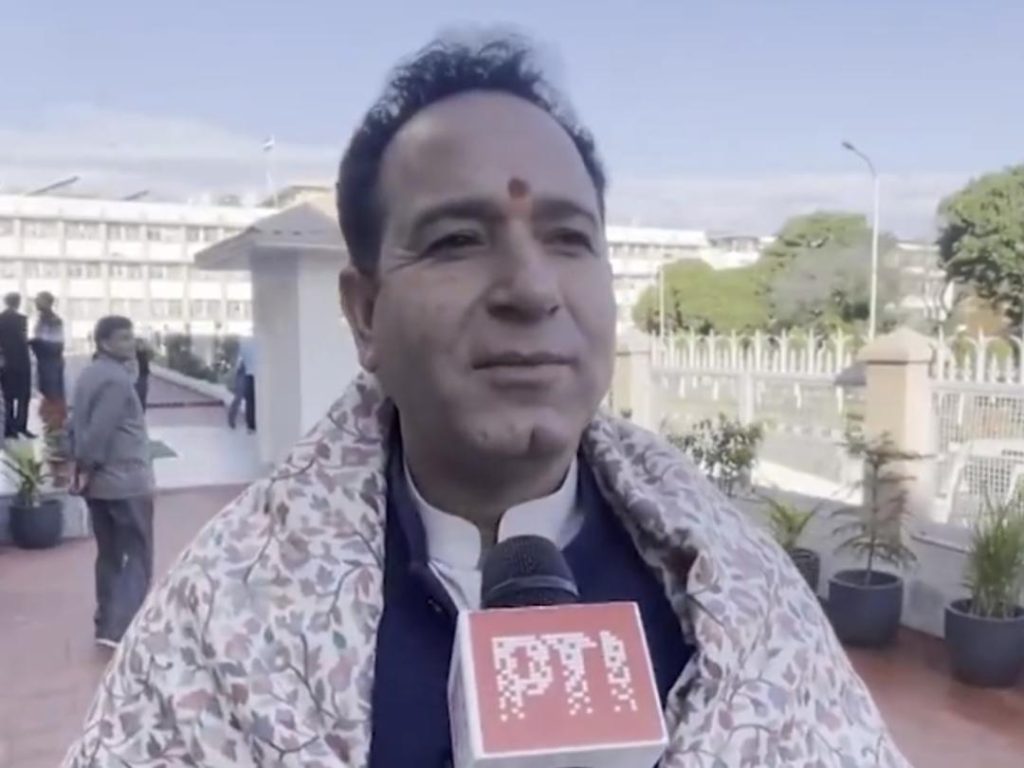
Title: Irrelevant to discuss Article 370 in J&K Assembly session: BJP
As the Jammu and Kashmir Assembly session is underway, a controversy has emerged over the discussion on Article 370, which was repealed by the Indian government in 2019. The BJP MLA and Leader of Opposition in the Assembly, Sunil Sharma, has stated that it is “irrelevant” to discuss Article 370 in the current session. According to Sharma, it would be a waste of time if the Assembly were to have a discussion on the topic.
Sharma’s statement came after the Lt Governor of Jammu and Kashmir, Manoj Sinha, delivered his address to the Assembly, in which he did not touch upon the promises made by the state’s present government. Sharma expressed disappointment at the lack of reference to the government’s promises in the LG’s address, stating that it was a missed opportunity to address the concerns of the people.
The controversy surrounding Article 370 has been ongoing for years, with the Indian government’s decision to repeal the provision in 2019 sparking widespread protests and demonstrations in the state. The provision, which granted special status to Jammu and Kashmir, was seen as a symbol of the state’s autonomy and distinct identity.
In the years leading up to its repeal, the BJP government had been vocal about its intentions to scrap Article 370, citing concerns about national security and the need to integrate the state with the rest of the country. However, the decision was widely criticized by opposition parties, who argued that it was a violation of the state’s rights and autonomy.
Despite the controversy, the Indian government has maintained that the repeal of Article 370 was necessary to ensure national unity and security. The government has also argued that the move has helped to promote economic development and integration in the state.
However, the opposition parties in Jammu and Kashmir have continued to demand the restoration of Article 370, arguing that it is essential for the state’s autonomy and identity. The issue has also been a major point of contention in the state’s politics, with many parties using it as a rallying cry to mobilize support.
The BJP’s stance on Article 370 has been a major factor in the controversy, with many critics accusing the party of using the issue to further its own political agenda. The party has been accused of exploiting the issue to divide the people of Jammu and Kashmir along communal lines, and to promote its own brand of Hindutva politics.
In the context of the current Assembly session, Sharma’s statement can be seen as a reflection of the BJP’s continued refusal to engage with the opposition on the issue of Article 370. The party has consistently refused to entertain any discussion on the topic, citing the fact that the issue has already been decided upon by the Indian government.
However, the opposition parties in Jammu and Kashmir have continued to demand a discussion on the issue, arguing that it is essential for the state’s autonomy and identity. The parties have also accused the BJP of using its majority in the Assembly to silence opposition voices and impose its own agenda on the state.
In conclusion, the controversy surrounding Article 370 in Jammu and Kashmir is a complex and contentious issue that has been ongoing for years. The BJP’s stance on the issue has been a major factor in the controversy, with many critics accusing the party of using the issue to further its own political agenda.
As the current Assembly session continues, it remains to be seen whether the BJP will engage with the opposition on the issue of Article 370. However, it is clear that the controversy is not going to go away anytime soon, and that it will continue to shape the politics of Jammu and Kashmir for years to come.






